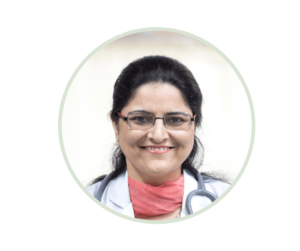Deliveries by caesarean section have been steadily rising in Delhi and across India over the last decade. And the reasons behind their rise are not always medically sound.
Sometimes, women elect to have a caesarean because they’re afraid of labour pains; but with the proper support in the labour room, women can successfully have a normal delivery and a positive birth experience.
At other times, your doctor may have a low threshold for deciding in favour of a caesarean, especially if you’re afraid of labour. And occasionally, Indian women might also face pressure from their families demanding a caesarean delivery because of an auspicious mahurat.
But the convenience of caesareans does not outweigh the risks involved.
A caesarean section is not a simple procedure; it’s a major surgery that comes with risks and complications as all surgeries do, so it should only be carried out when medically indicated for the mother or her baby.
Just as myths exist about normal deliveries because of misinformation, the same holds true for caesarean deliveries and we’ll be discussing some the myths below.
Myth 1: A Caesarean section is safer for mother and baby

The American Congress of Obstetrics and Gynaecology (ACOG) lists these risks for a mother after a planned Caesarean:
- Longer hospital stay because of increased recovery times
- Complications in future pregnancies like uterine rupture, problems with placental implantation, and the need for a hysterectomy.
Other complications include blood loss, bladder or bowel injuries and chronic pelvic pain long after the caesarean delivery.
For babies, the risks of a caesarean include:
- Respiratory distress for newborns
- Delayed breastfeeding
- Delayed skin to skin contact
- A higher likelihood of diabetes, obesity and allergies
Babies born via a caesarean also don’t receive the benefits of the maternal stress hormones present at the time of a vaginal birth.
Myth 2: A Caesarean section is painless compared to a vaginal delivery
Think of having an elective caesarean as deferred pain.
A Caesarean requires making an incision on your lower abdomen and your uterus to bring your baby out, so needless to say, you’re looking at recovering from stitches and a healing scar, both of which can take a while to settle.
Women also report suffering from intense gas-related pains because of slower bowel movements immediately after their caesarean section.
Myth 3: A planned Caesarean can be done any time after 37 weeks
Although a pregnancy is considered full-term at 37 weeks, having a Caesarean scheduled right at that time is not recommended.
The ACOG recommends waiting until 39 weeks before considering an elective C-section because by that time, the baby’s lungs will have developed enough to function properly outside the womb.

Moreover, your baby’s brain development is still taking place in the final stages of your pregnancy.
Myth 4: Once a Caesarean, always a Caesarean
Definitely not true.
About 90% of women who have had a C-section once can try for a vaginal delivery with a success rate 70-75% at a good birthing center.
In fact, the ACOG Guidelines speak out in favour of a Vaginal Birth after Cesarean (VBAC). According to the them, a VBAC is associated with a “decreased maternal morbidity and a decreased risk of complications in future pregnancies.”
Your baby’s delivery will be one of the most important occasions of your life. Our intent is not to paint all normal deliveries as “good” or all caesarean sections as “bad.” But we do want you to understand that a caesarean should only be chosen if it is medically indicated.
Make sure you choose a doctor who supports having a normal delivery and is willing to answer all your questions.
This article has been written with Dr. Anita Sabherwal Anand, Consultant, Obstetrician-Gynecologist at Sitaram Bhartia Hospital in South Delhi. Dr. Anita is a highly qualified gynecologist with 20+ years of experience who is trusted by low-risk and high-risk mothers alike for her guidance on having a healthy pregnancy and delivery.

MBBS, Lady Hardinge Medical College, University of Delhi (1992); MD (Obstetrics & Gynaecology), Lady Hardinge Medical College, University of Delhi (1997); DNB Secondary (Obstetrics & Gynaecology), National Board of Medical Education, New Delhi (1999)
Get an consultation with our gynecologist. Please call on +91 9871001458 to schedule a consultation either in-person at our hospital in South Delhi or an online consultation.
You may also like:


